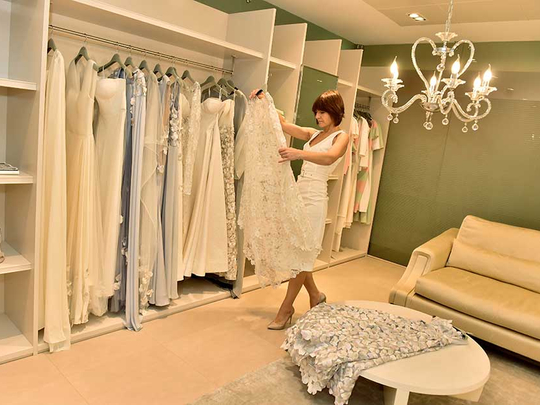
Dubai
For first-time retailers or new brands trying to make a mark in the UAE, there has never been a more difficult time to do so than the present. With consumers not willing to spend on anything other than bare necessities, the retail sector is passing through a phase worse than what it experienced during 2009-10.
For new entrants, they also have to contend with the — mounting — cost of doing business in the UAE apart from having to tackle weak consumer demand. “In an ideal world, rental and allied costs should not be more than 15-20 per cent of the retailer’s overall expenses — that’s not happening here,” said a source at one of the large retail groups. “For first-timers, anything above 20 per cent will have an impact on their cashflow management and leaves little for them to do any worthwhile marketing or brand building.
“Without sustained marketing, their chance of getting across their message to potential shoppers is limited. If these circumstances continue, it will be extremely difficult for new — or relatively new — retail-related ventures to stay the course.”
Be it in fashion or technology, in times of stress, shoppers are more likely to go in for a brand they have had experience with rather than “risk” the untried. In the mobile phones category, for instance, what are the chances that a brand new label will be able to get a welcome signal from a buyer? Pretty weak, is the informed opinion in the high-streets.
Some recent entrants — cutting across categories, including F&B — have already headed for the exit doors, or decided to relocate to a less rent-heavy outlet. Others believe that waiting around for market sentiments to improve would only have harmed their prospects in the long run.
“It would have been really better had we entered the market a couple of years back,” said Rahul Agarwal, CEO of Organic Harvest, a personalcare brand that has just had its debut in the UAE. “But for us, this is the right time as getting a year later could be worse because a) there’s no guarantee the market will revive 360-degrees and b) there will be other organic brands splashing the market, which is currently nonexistent.”
For the brand then, it is all about trying to get in a first-mover advantage. “Currently we have no competitors as far as organic concept is concerned. In terms of pricing, we compete with the likes of L’Oreal, Olay and Neutrogena. We are giving an organic option at the same price points.
“Getting [local] shelf space was definitely expensive... but not that difficult because [of] our comprehensive range and at a substantial mass price point.”
According to Rahim Shah, Executive Director at the home-grown fashion brand Kristina Fidelskaya, the pulls and pressures on relative newcomers is the same that the established labels face.
“The market is very competitive and everybody has to reinvent themselves all the time,” said Shah. “Even the bigger players have to make rigid changes and tough decisions.
“The rent and salaries ensure you have what you need to create the product you are going to bring to market. When going to the market you need to come up with the funds to drive the ideas and concepts you have.”
The brand is definitely not waiting for a market turnaround to put its plans in place. Plans are afoot to launch its first standalone boutique. Currently, its collections are curated out of a showroom at its office, as well sold through multi-brand concept stores.
Apart from its own store, Shah intends to extend the collections into fashion accessories and fragrance in the near term. “The nature of the fashion industry is very capital heavy, especially if you want to do it in the correct way without compromising on quality,” said Shah. “We have been active now since the end of 2014, invested, and still investing in our business.
“Depending on the product-line, timing and size of the order, we decide where best to place production. Our primary line and shoes are produced in Italy, perfume is produced in France and for the “Sensation” collection and T-shirts we have decided to produce this in the UAE and China.
“For menswear, we have teamed up with Orazio Luciano, a tailoring house from Naples, where we organise trunk shows and give a made-to-measure experience. The market has not hindered our performance at all... in fact we have exciting plans for brand growth in the coming 12 months.”
Only time — and the next upturn in the UAE’s retail sector — will tell how many of the latest entrants are still around to tell their tales.












